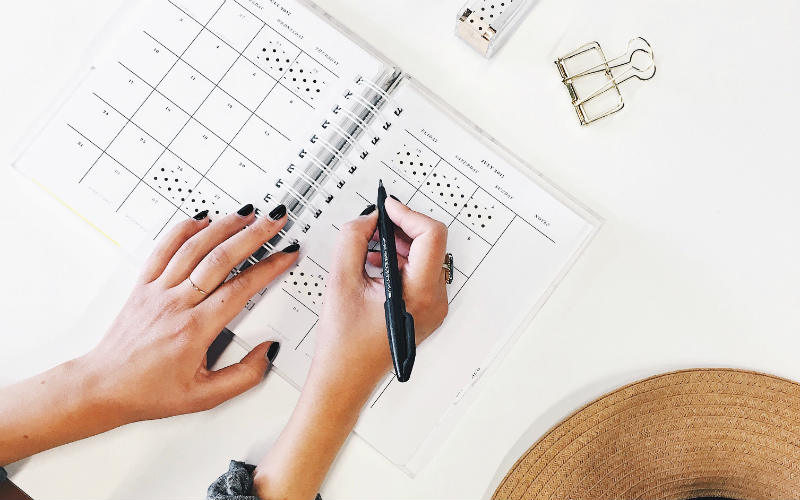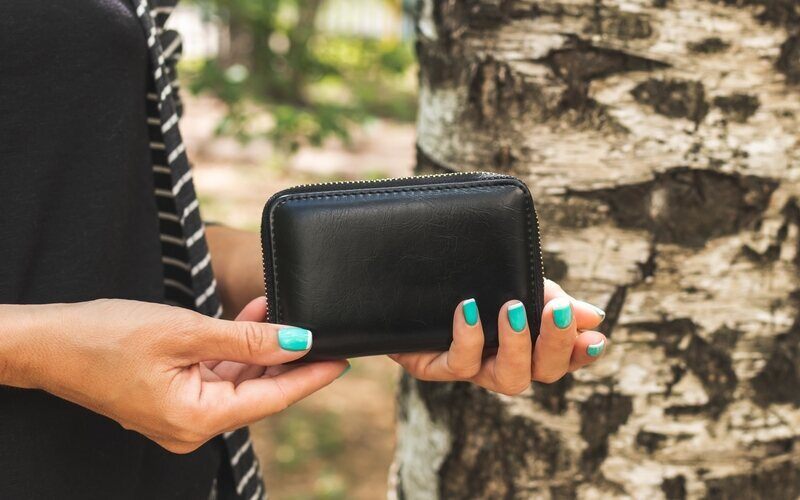New research from MyState Bank found that many Australians are embracing the money learnings that arose from the pandemic, and are improving their spending habits.
The bank asked more than 1,000 Australians what their financial resolutions for 2021 were and the overwhelming response was to rein in spending on discretionary items, followed by starting and maintaining a budget.
MyState Bank General Manager, Customer Experience, Heather McGovern said one of the silver linings to emerge from the pandemic is how it's made people more aware of their spending habits.
"The pandemic has profoundly altered the daily lives of Australians, ushering in a new-found respect for the benefits of savings," Ms McGovern said.
“More consumers are actively questioning their needs versus wants at the checkout, and according to our latest research, aligning their financial behaviour accordingly. It is encouraging to see many Australians seeking out ways to build a financial buffer, whether that is by having a staycation, cooking more at home, or swapping the gym for outdoor exercise.
“We expect these savvy savings habits to continue, with these new behaviours among consumers outliving the recession.”
To start 2021 off on the right foot, here's how to be more money savvy this year.
Start tracking your spending
Most of us have a general idea where our money goes, like how much you spend on rent and food every week, but I bet there are transactions coming out that you may not even be aware of (oh hey there News Limited subscription I signed up for yonks ago and forgot about).
Pouring over your bank statements is kind of old school these days, not to mention time-consuming, but there are easier ways to track your spending. Apps like Pocketbook and MoneyBrilliant will sync up with your bank account and automatically track and categorise your expenses for you so you can easily see where your money is going.
Seeing how much you're spending can be really confronting, but it's often the kick up the butt you need to get your money organised.
Get on top of your budget
Don’t have a budget yet? You’re not alone. Over a quarter of Australians don’t have a budget, according to a 2019 survey by MyState Bank, so don’t feel too bad.
Many of us prefer to wing it when it comes to budgeting and think we can figure out our spending/saving on the fly. Naturally, this approach hardly ever works. If you’ve been tracking your spending, you can easily see where you need to cut down on any expenses, like all those forgotten subscriptions.
Senior Tax Advocate from CA ANZ Susan Franks said it’s important to set realistic, achievable goals when budgeting.
“That might be putting $50 away each pay or cutting up the credit card and paying $100 more off your balance each pay,” she said.
“Split up your financial goals into short-term and long-term. Short-term goals are achievable within six months to a year, and long-term anything longer than a year.
“It may even help to rename your bank account with the name of your goal such as ‘Holiday’ to inspire you and ensure you think twice before taking money from it.”
Ms McGovern says the trick to saving money is to be more specific about what you want to save and why.
"Many of us start the new year with the goal to simply save more money, however, the ambiguity of this goal can see it fall by the wayside after the first few months of the year has passed. Translate your goal from “I want to save more money this year” to “I want to save $5,000 by October.”
"Science shows many of us are much more likely to be successful in keeping a financial resolution if we have a clear ‘why’ – what’s in it for you. For instance, it is important to know the motivation behind your saying $5,000 – from funding a dream wedding to a dream home."
We’ve written an in-depth guide on how to budget for more tips.
Spring clean your subscriptions
Once you start tracking your spending you can’t help but see all your big money wasters, such as your weekly (or triweekly!) Uber Eats habit. Don’t overlook small transactions either because they all add up.
Note to self: cancel that News Limited subscription you never use but you’ve paid $30 a month for all year…
Dump your debt
According to MyState Bank, paying off interest-accruing debt is high on Australians' list of new year money resolutions, with one in five planning to pay off their mortgage faster.
Meanwhile, 17% of consumers resolved to tackle credit card and personal loan debt.
Maybe you racked up a whole lotta credit card debt buying Christmas presents or you’ve got a car loan you want to finally pay off. Whatever it is, this is the time to write down all of your debts: what do you owe, who do you owe, what interest rate you’re being charged, and when it’s due.
Then you want to create a plan to manage the debt.
“Focusing on the smallest debts can give you a sense of achievement and keep you motivated,” Ms Frank said.
“Paying off the debt with the highest interest rate or transferring that debt to a lower interest rate may also help you achieve your financial goals more quickly.”
The longer you hold onto your debt, the more the interest stacks up which eats into the amount you could be saving for other things. Even just contributing an extra $50 to your debt payments every month can save thousands over the life of the debt.
Have ‘no spend’ days
From food and alcohol delivery to streaming services and rideshare, it’s so easy to spend money these days without even thinking about it. Try having at least one day a week where you commit to spending nothing - be it cash, debit or credit.
If that’s too hard, try only spending with cash rather than by card where you can. Physically parting with $50 feels way more painful than mindlessly tapping your card and it will make you think twice before you spend.
Refinance your home loan
If you put refinancing in the too hard basket last year, now is the perfect time to do it with interest rates plummeting last year and expected to stay at record lows for three years, according to the Reserve Bank.
With the lowest official cash rate on record, home loan interest rates well below 2% and very competitive deals on offer, refinancing your home loan should be high on your to-do list.
Ditch and switch your provider
What do you get when you combine summer with high energy prices? An electricity bill large enough to make you weep. How about the current rate you’re paying on your car insurance premium? Don’t feel like you’re getting a good deal on your health insurance anymore?
Don’t pay a loyalty tax: take decisive action and make the switch if you feel like your current provider isn’t giving you value for money anymore.
Sort out your super
The earlier you sort out your super, the better off you’ll be later. This is largely down to the effect of compounding where you basically gain returns on your returns over time.
But sorting out your super now means you’re also cutting down on multiple fees and charges. All you have to do is log in to your MyGov account where you can track and manage your super, as well find any lost or unclaimed super.
If you were one of the 3 million Australians who dipped into their super last year under the federal government's early access scheme, it's not too late to get back on track. Here's how to catch up if you've withdrawn your super early.
Become more financially literate
In the words of Sir Francis Bacon (epic name), knowledge is power. If you don’t know the interest rate on your savings account or what an ETF is, this is the year to arm yourself with information.
You don’t need to become an expert on the stock market, but you should know how much interest you’re paying on your home loan or credit card, and when large one-off expenses are due, like your car rego and insurance so you can budget for them.
“Information is power. Get the information, write your goals down, be accountable and stick with it,” Ms Frank said.
Savings.com.au’s two cents
For many people, New Year’s resolutions are nothing more than a meaningless, cliche tradition.
But if you’re serious about getting on top of your money, keep your goals simple and realistic to give yourself the best chance of achieving them.
Photo by STIL on Unsplash

Ready, Set, Buy!
Learn everything you need to know about buying property – from choosing the right property and home loan, to the purchasing process, tips to save money and more!
With bonus Q&A sheet and Crossword!



 Emma Duffy
Emma Duffy
 Harry O'Sullivan
Harry O'Sullivan













